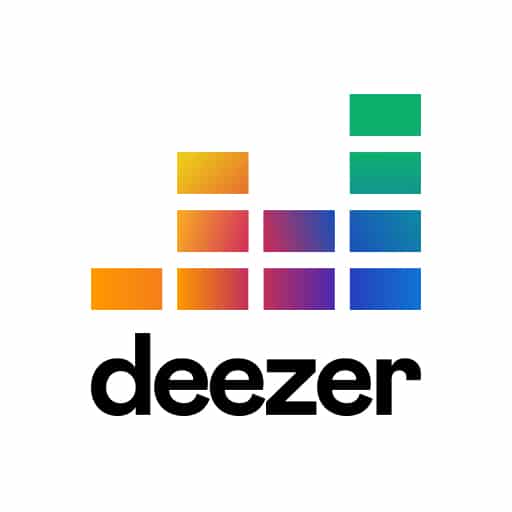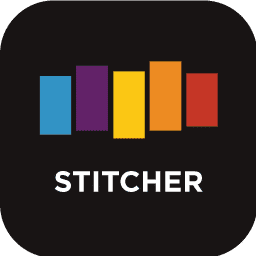Ted Nash and Glenn Close Transformation
Transformation
Tiger Turn
This one takes plenty of concentration. The liner booklet and perhaps this review will help when you listen to Transformation from reedist Ted Nash and actress Glenn Close. It is an ambitious project of the first order with the subhead entitled Personal Stories of Change, Acceptance, and Evolution, this recording involves familiar names and some eye-opening stories. Call it a multidisciplinary masterwork featuring Wayne Brady, Amy Irving, Matthew Stevenson, Eli Nash, and the Jazz at Lincoln Center Orchestra (JLCO) with Wynton Marsalis. Interestingly the JLCO takes no name billing but it is indeed that talented unit, to which Nash has been a long-time member, that provides the musical backing to the spoken word. Nash’s last two JLCO-commissioned suites for big band—Portrait in Seven Shades (2010) and Presidential Suite (2016) received high acclaim, the latter winning a Grammy with Glenn Close also involved in it.
This time Close collaborates with Nash, taking a co-leading role, curating the literary source material for accompanying spoken word performances and voicing some of it herself. The chosen pieces explore the many facets of transformation in the tangible and intangible sense. The stories are separate, not necessarily linked together thematically except that transformation is the common element. Actor and comedian Brady introduces “Creation, Part I” by reciting the opening lines to English poet Ted Hughes’ Tales from Ovid in a commanding, authoritative voice. Close, commanding in her own signature way, joins Brady in alternate verses, while the orchestra colors the readings, steered by pianist Dan Nimmer and bassist Carlos Henriquez and punctuated by short bursts from Sherman Irby on alto saxophone and Wynton Marsalis on trumpet. (Note: The liners do detail the speakers and soloists by piece.)
“Creation, Part II essays man’s evolutionary journey, the beginnings of which are interpreted here as clumsy and unsteady, brought into clear focus through the music. Drummer Obed Calvaire’s brushes serve as a foil for Paul Nedzela’s bass clarinet and Henriquez’s bass, which play the mischievous opening theme in unison. The entrance of Chris Chrenshaw’s trombone announces a transformation is underway—from gawky and lovable to industrious and self-assured. By the time Nedzela enters with a baritone saxophone solo, man knows it’s the man. The close restates the opening theme with a more aggressive stance as Calvaire uses sticks instead of brushes.
The next two tracks, “Dear Dad/Letter” and “Dear Dad/Response” are perhaps the emotional centerpiece of the work. First, Nash’s son Eli, backed by the orchestra, reads the letter he wrote several years ago, when he first came out to his father as a transgender man. “I am not changing me,” Eli says, “just my physiology, just how people see me.” Nash’s response on soprano sax, with an opening vamp reminiscent of Herbie Hancock’s “Maiden Voyage,” is rife with pride and unconditional love. His playing is especially emotive in the second portion which is solely instrumental.
Languid piano from Nimmer introduces Nash’s interpretation of poet Conrad Aiken’s Preludes for Memnon. Close’s voice is flanked by Nimmer’s piano and Irby’s alto flute as she reads an excerpt about the timeless and inevitable cycle of destruction and generation of natural life. Irby and trumpeter Ryan Kisor lead woodwind and trumpet sections that recreate the imagery.
Next is “One Among Many,” a composition that accompanies the story of formerly imprisoned political radical Judith Clarke, a former member of the Weather Underground. Clark was an unarmed getaway driver in the Brink’s robbery of 1981 in Nanuet, New York. The robbers murdered a security guard and two Nyack, New York police officers. Clark was arrested in October 1981 and convicted of felony murder for her role in the crime. She was sentenced to the maximum penalty allowed by law: Imprisonment for a term of 75 years to life at the Bedford Hills Correctional Facility in New York.In December 2016, after extensive public and legal support, Governor Andrew Cuomo commuted her sentence to 35 years to life, making her eligible for parole. She was denied parole in April 2017 but granted parole on April 17, 2019 after 37 years in prison. Clark was released on May 10, 2019. Even though the original crime took place outside of NYC, the musical accompaniment picks up on “underground” as it mimics the city’s subway system. Amy Irving delivers Clarke’s words of gratitude about the mundane freedoms taken for granted until they’re taken away. Still, her crime and its fallout continue to haunt her; she yearns to be fully transformed. The orchestration contemplates being physically free yet still seeking psychological and emotional liberty, with solos from Nimmer and trombonist Elliot Mason before a drum solo from Calvaire’s links the composition’s myriad of emotions together.
Tatum Greenblatt’s muted trumpet accents “Rising out of Hatred,” a remarkable story of two college kids—one an observant Jew, the other the heir to a prominent white nationalist family, who are somehow able to forge an unlikely friendship borne from their shared humanity. Brady returns as author and spoken-word performer on “A Piece by the Angriest Black Man in America (or, How I Learned to Forgive Myself for Being a Black Man in America).” Accompaniment is limited primarily to Henriquez and Calvaire who conjure the vibe of a coffeehouse poetry reading set to spare music. There are carefully timed horn bursts, some flute riffs, and an abridged Brady rendition of an old Chaka Kahn tune. Brady reveals the tenuous relationship with his mother and recounts her calling him an “ugly Black[expletive].” Ultimately forgiving her, Brady concludes by talking about how fatherhood has led him to prioritize forgiveness for the sake of becoming a better role model. We then transition to “Forgiveness,” Nash’s fully instrumental interpretation of the concept. Marsalis, Nimmer, and Nedzela are featured in the work’s most symphonic piece, characterized by distinct movements, reflecting that forgiveness is arrived at, incrementally, in stages.
The final two pieces are “Wisdom of the Humanities” and “Reaching the Tropopause.” On the former, Irving returns to read words written by biologist E.O. Wilson that offer a stern warning to humans for threatening the environment. The latter, borrowed from Tony Kushner’s Angels in America, has both Brady and Close participating in the program’s culmination. Meanwhile, Nash’s musical response, propelled by the rhythm section, features Marsalis and Victor Goines soaring on respective trumpet and tenor solos before exchanging statements that build to a dramatic ending.
The depth of the content, its social relevance, and the performances all add up to more Grammy recognition for Nash. Spend some time with this to fully absorb its many aspects.
Spoken Word
Glenn Close, Wayne Brady, Eli Nash, Amy Irving, Matthew Stevenson
Orchestra
Ted Nash – Conductor, Soprano Sax
Woodwinds – Sherman Irby (lead), Marc Phaneuf, Victor Goines, Mark Lopeman, Paul Nedzela
Trumpets – Ryan Kisor (lead), Tatum Greenblatt, Marcus Printup, Wynton Marsalis
Trombones – Vincent Gardner (lead), Christopher Crenshaw, Elliot Mason
Rhythm Section – Dan Nimmer (piano), Carlos Henriquez (bass), Obed Calvaire (drums)
- Jim Hynes
Buy Us a Cup of Coffee!
Join the movement in supporting Making a Scene, the premier independent resource for both emerging musicians and the dedicated fans who champion them.
We showcase this vibrant community that celebrates the raw talent and creative spirit driving the music industry forward. From insightful articles and in-depth interviews to exclusive content and insider tips, Making a Scene empowers artists to thrive and fans to discover their next favorite sound.
Together, let’s amplify the voices of independent musicians and forge unforgettable connections through the power of music
Make a one-time donation
Make a monthly donation
Make a yearly donation
Buy us a cup of Coffee!
Or enter a custom amount
Your contribution is appreciated.
Your contribution is appreciated.
Your contribution is appreciated.
DonateDonate monthlyDonate yearlyYou can donate directly through Paypal!
Subscribe to Our Newsletter
 |  Spotify |  Deezer | Breaker |
 Pocket Cast |  Radio Public |  Stitcher |  TuneIn |
 IHeart Radio |  Mixcloud |  PlayerFM |  Amazon |
 Jiosaavn |  Gaana | Vurbl |  Audius |
Reason.Fm | |||
Find our Podcasts on these outlets
Discover more from Making A Scene!
Subscribe to get the latest posts sent to your email.














































